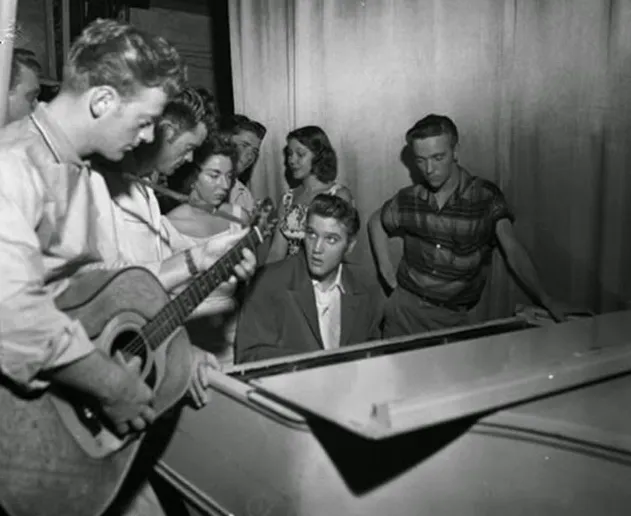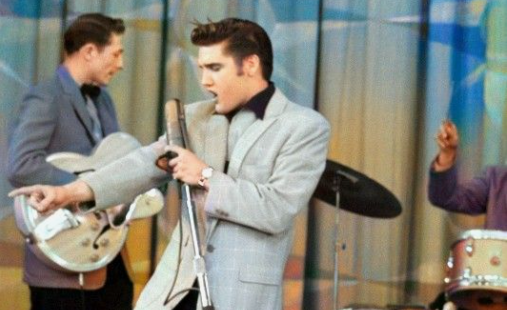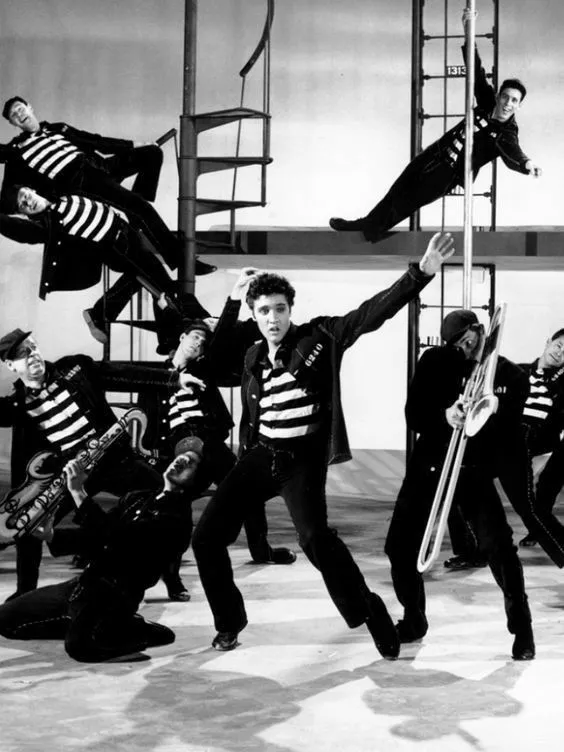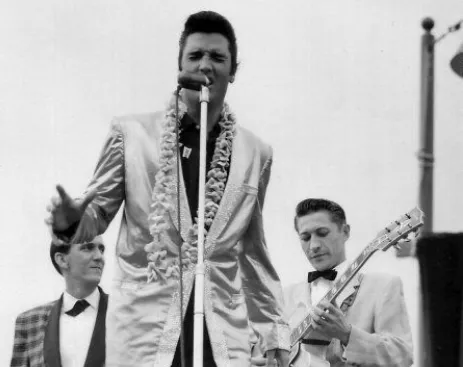"If I Can Dream" is one of Elvis Presley’s most powerful and enduring songs, recorded in June 1968 and released later that year. The song was born out of a turbulent time in American history and marks a significant moment in Elvis’s career, reflecting his personal beliefs and aspirations for a better world. Written by Walter Earl Brown, "If I Can Dream" captures the essence of hope, equality, and the desire for a brighter future.
### Background and Context
The late 1960s were a period of significant social and political upheaval in the United States, marked by the civil rights movement, the assassination of Dr. Martin Luther King Jr., and widespread calls for change. Elvis, deeply affected by these events, sought a way to express his feelings about the state of the world and his hope for a better future. "If I Can Dream" provided that outlet.
The song was written specifically for Elvis's '68 Comeback Special, a pivotal television event that marked his return to live performances after several years focusing on movies and studio recordings. The special was intended to revive Elvis's career, showcasing his talents and reconnecting him with his audience. The inclusion of "If I Can Dream" was a bold choice, reflecting Elvis's desire to make a statement about the need for unity and change.

### Musical Style and Interpretation
"If I Can Dream" is a powerful ballad that blends elements of gospel, rock, and pop. The song begins with a gentle introduction, gradually building in intensity as Elvis’s voice soars with emotion. The arrangement features lush orchestration, including a full string section, brass, and a gospel-style choir, creating a rich and dramatic backdrop for Elvis's impassioned performance.
Elvis's vocal delivery is nothing short of remarkable. Known for his ability to convey deep emotion through his singing, Elvis pours his heart and soul into "If I Can Dream." His voice is powerful and earnest, reflecting his deep-seated hope and yearning for a better world. The crescendos in his performance are particularly striking, conveying a sense of urgency and conviction that resonates with listeners.
### Themes and Lyrics
The lyrics of "If I Can Dream" are imbued with a sense of hope and longing for a better future. Lines like "There must be lights burning brighter somewhere / Got to be birds flying higher in a sky more blue" and "While I can think, while I can talk / While I can stand, while I can walk / While I can dream, please let my dream come true" convey a powerful message of optimism and the belief that positive change is possible.
The song’s themes of equality, peace, and hope are universal, resonating with audiences across different backgrounds and generations. By expressing a desire for a world where people can live together in harmony, free from prejudice and violence, "If I Can Dream" captures the spirit of the civil rights movement and the broader quest for social justice.
### Reception and Legacy
Upon its release, "If I Can Dream" was met with widespread acclaim. The song was praised for its emotional depth and its relevance to the social issues of the time. It became a commercial success, reaching number 12 on the Billboard Hot 100 chart and solidifying its place in Elvis’s catalog of iconic songs.

Over the years, "If I Can Dream" has remained a beloved anthem of hope and resilience. It has been covered by numerous artists and continues to be featured in various media, from documentaries to television shows and films. The song’s enduring appeal lies in its timeless message and the raw emotion of Elvis’s performance.
### Impact on Elvis's Career
"If I Can Dream" marked a turning point in Elvis’s career, signaling his willingness to engage with the pressing social issues of his time. The song demonstrated his depth as an artist and his ability to connect with audiences on a profound level. It also helped to re-establish Elvis as a powerful and relevant voice in the music industry, paving the way for his continued success in the years that followed.
For Elvis, "If I Can Dream" was more than just a song; it was a personal statement of his hopes and dreams for a better world. The song’s inclusion in the '68 Comeback Special underscored his commitment to using his platform to inspire positive change and to express his deepest convictions.
### Conclusion
"If I Can Dream" by Elvis Presley is a powerful and timeless anthem that continues to resonate with audiences today. With its poignant lyrics, stirring musical arrangement, and Elvis’s impassioned performance, the song captures the essence of hope and the enduring human desire for a better future. As a reflection of Elvis’s personal beliefs and a response to the social issues of his time, "If I Can Dream" stands as a testament to his legacy as not just an entertainer, but a voice for change and a symbol of resilience.



